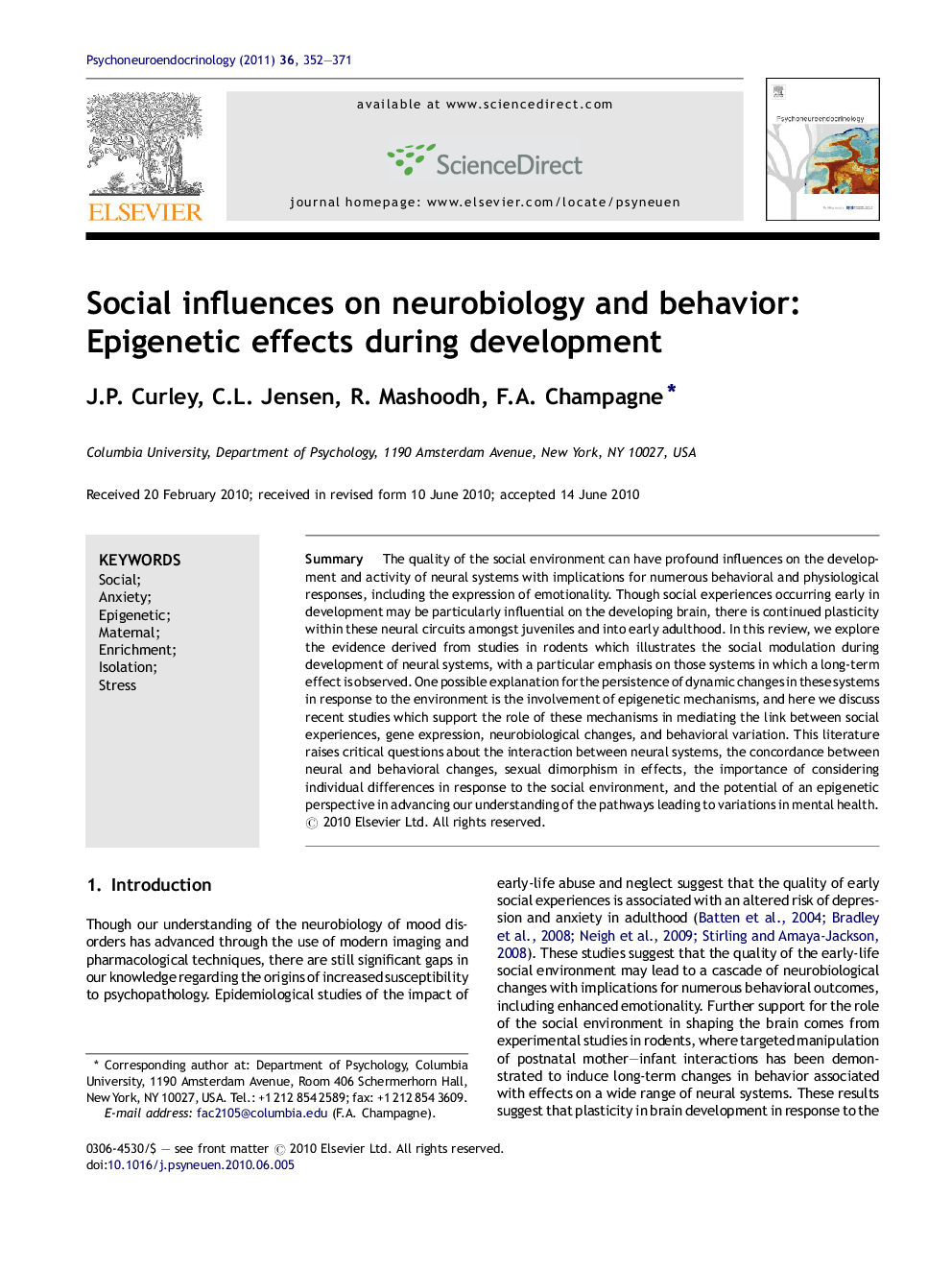ترجمه فارسی عنوان مقاله
تأثیرات اجتماعی بر بیولوژی اعصاب و رفتار: اثرات اپی ژنتیک در طول توسعه
عنوان انگلیسی
Social influences on neurobiology and behavior: Epigenetic effects during development
| کد مقاله | سال انتشار | تعداد صفحات مقاله انگلیسی |
|---|---|---|
| 37263 | 2011 | 20 صفحه PDF |
منبع

Publisher : Elsevier - Science Direct (الزویر - ساینس دایرکت)
Journal : Psychoneuroendocrinology, Volume 36, Issue 3, April 2011, Pages 352–371
ترجمه کلمات کلیدی
اجتماعی -
اضطراب -
اپی ژنتیک -
مادر -
غنی سازی -
جداسازی -
فشار
کلمات کلیدی انگلیسی
Social;
Anxiety;
Epigenetic;
Maternal;
Enrichment;
Isolation;
Stress

